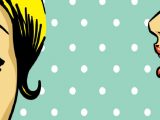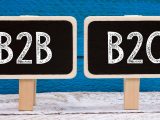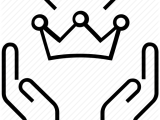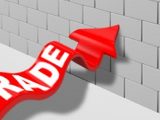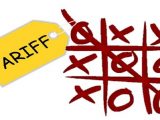
Impulse Purchase
December 2, 2018 0 By business_MHRAn impulse purchase or impulse buying is an unplanned decision to buy a product or service, made just before a purchase. One who tends to make such purchases is referred to as an impulse purchaser or impulse buyer. Research findings suggest that emotions and feelings play a decisive role in purchasing, triggered by seeing the product or upon exposure to a well crafted promotional message.
Marketers and retailers tend to exploit these impulses which are tied to the basic want for instant gratification. For example, a shopper in a supermarket might not specifically be shopping for confectionery. However, candy, gum, mints and chocolate are prominently displayed at the checkout aisles to trigger impulse buyers – and / or their children – to buy what they might not have otherwise considered. Alternatively, impulse buying can occur when a potential consumer spots something related to a product that stirs a particular passion in them, such as seeing a certain country’s flag on the cover of a certain DVD. Sale items are displayed in much the same fashion.
Impulse buying can also extend to more expensive items such as automobiles, couches, and home appliances. Automobiles in particular are as much an emotional purchase as a rational one. This in turn leads auto dealers all over the world to market their products in a rapid-fire, almost carnival-like manner designed to appeal to emotion over reason.

Impulse buying disrupts the normal decision making models in consumers’ brains. The logical sequence of the consumers’ actions is replaced with an irrational moment of self gratification. Impulse items appeal to the emotional side of consumers. Some items bought on impulse are not considered functional or necessary in the consumers’ lives. Preventing impulse buying involves techniques such as setting budgets before shopping and taking time out before the Purchase is made.
A study published in the June 2008 issue of the Journal of Consumer Research suggests that consumers are more susceptible to making impulsive purchases for one brand over another if they are distracted while shopping. In the study, Central Michigan University Psychology professor Bryan Gibson surveyed college students by measuring their preference for a variety of soft drinks, including Coke and Pepsi. Results of Gibson’s study found that implicit attitudes, or those that people may not be conscious of and able to verbally express, predicted product choice only when participants were presented with a cognitive task, suggesting that implicit product attitudes may play a greater role in product choice when the consumer is distracted or making an impulse purchase.
Researchers at the University of British Columbia and the Cheung Kong Graduate School of Business found that impulse spending is a behavior associated with disorganized environments. The study concluded that being surrounded by chaos impairs a person’s ability to perform other tasks requiring ‘brain’ power, which results in a threat to a person’s sense of personal control.
8 Types of Impulse Buying
Reminded

A customer is reminded of something they need while shopping. For example, a customer who buys batteries because they see them at a checkout counter and remember they have several devices that are out of power.
Suggested
A customer is persuaded by a marketing message or pitch they encounter while shopping. For example, a salesperson pitches protective spray to a customer who buys shoes.
Motivational
A customer sees something they are a strongly motivated to buy. For example, a customer who craves chocolate decides to buy a chocolate bar on their lunch break while waiting in line to buy a salad.
Savings

Many customers are in the habit of stocking up on things that are on sale as a means of saving money. For example, a customer who goes to a supermarket to buy a snack may end up buying 8 packages of coffee because they are on sale.
Complementary
A customer buys several things that are complementary to a purchase. For example, a musician who buys a new keyboard might be easily be convinced to add on some headphones.
Fear of Missing Out

Purchasing something that is in limited supply or that is on sale out of a fear of missing out.
Shopping Enthusiasts

Customers who find joy in shopping may make sudden purchases driven by desire. For example, some shoppers will buy things beyond their budget due to uncontrolled emotional desires.
Decision Fatigue

Customers who are tired of thinking about a purchase may settle for something unexpected as a means to escape shopping. For example, a customer who is looking for a product under $200 may consider functions and features for hours. Then in a state of decision fatigue they may suddenly buy a $500 model without much thought at all because it beats the cheaper models on features.

